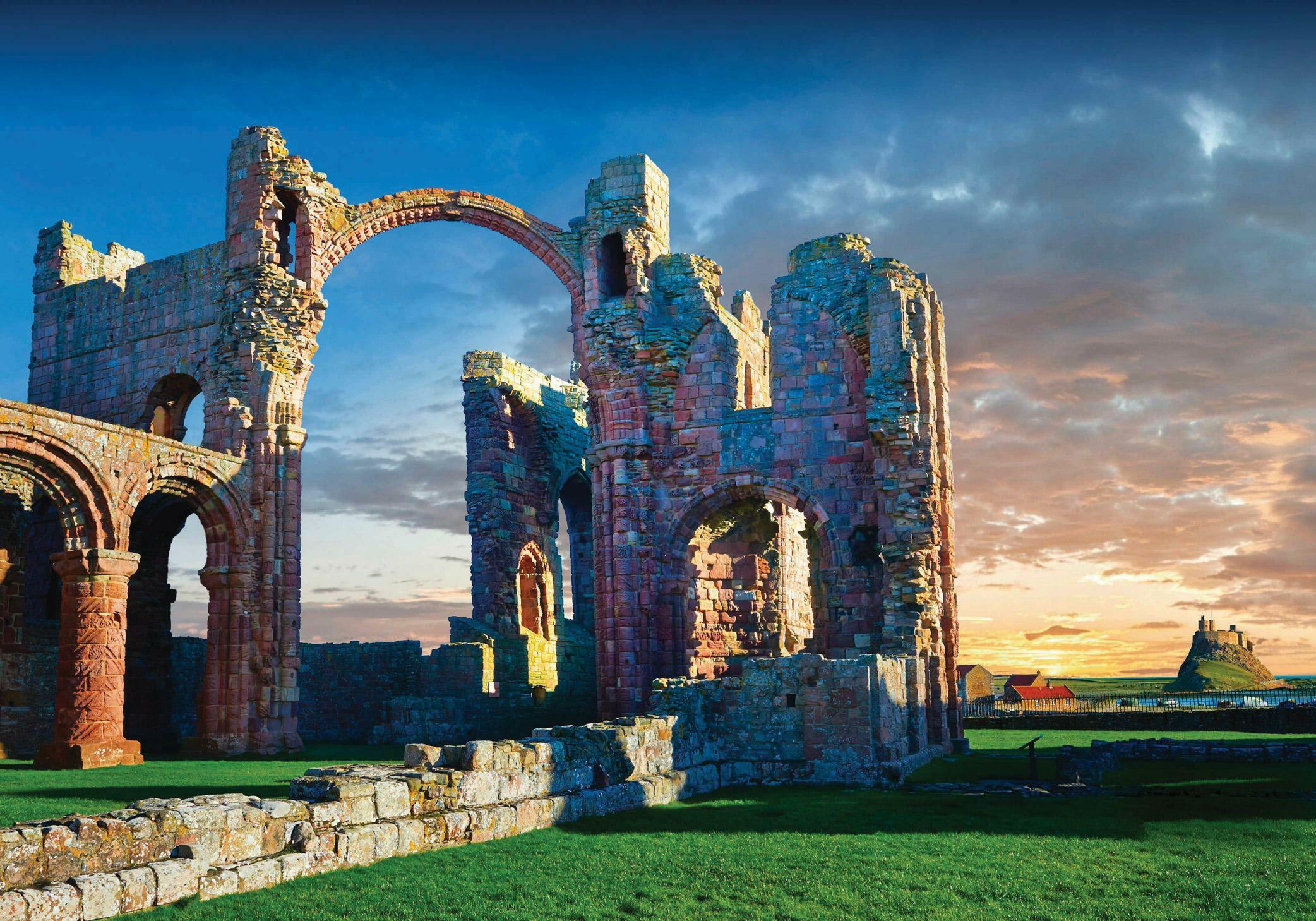Essayer OR - Gratuit
NORTHERN POWERHOUSE
BBC History UK
|September 2023
During its turbulent four-century history, the kingdom of Northumbria clashed with Pictish warriors, Welsh kings and Viking raiders. Fiona Edmonds tells the story of an ambitious realm that changed the face of early medieval Britain

On 20 May 685, Bishop (and future saint) Cuthbert was admiring the wonders of Carlisle, where he was visiting Queen Iurminburh, wife of King Ecgfrith of Northumbria. Touring this former Roman bastion, the cleric marvelled at a fountain that continued to flow many centuries after it was built. But then, we're told, Cuthbert became suddenly troubled. Leaning on his staff, he declared sorrowfully: "Now, the contest is decided!" Two days later, a Northumbrian warrior arrived from the north, relaying grave news: the king, Iurminburh's husband, was dead. Cuthbert's premonition had been proved correct.
Earlier that month, Ecgfrith had led his army north into the lands of the Picts. For many years, Northumbria had exacted tribute from some of the peoples living north of the Forth and Clyde estuaries. Now, Ecgfrith decided, it was time to enforce his overlordship. Friends had counselled against this expedition, not least Cuthbert - wise advice, as it transpired. On 20 May, the day of the bishop's dire pronouncement in Carlisle, a Pictish force launched a devastating ambush, killing King Ecgfrith and his elite retinue.
More than 1,300 years later, we're still unsure where Ecgfrith met his end. One thing seems certain, though: the clash now known as the battle of Nechtansmere (or Dún Nechtain) was fought in Pictish territory, deep in what's now Scotland. This demonstrates a key point that challenges widely held views. Northumbria has long been seen through the lens of English history: a kingdom whose future lay as a part of the English state. Yet clearly that's not how Ecgfrith saw it. In fact, the Northumbrians looked west and north as well as east and south.

Territorial ambitions
Cette histoire est tirée de l'édition September 2023 de BBC History UK.
Abonnez-vous à Magzter GOLD pour accéder à des milliers d'histoires premium sélectionnées et à plus de 9 000 magazines et journaux.
Déjà abonné ? Se connecter
PLUS D'HISTOIRES DE BBC History UK

History Extra
Q&A
A selection of historical conundrums answered by experts
8 mins
March 2026

History Extra
The game's afoot
Having previously made two films starring Robert Downey Jr as Sherlock Holmes, it seems Guy Ritchie remains as fascinated as ever by Sir Arthur Conan Doyle's famous detective.
1 min
March 2026

History Extra
EXHIBITIONS
If we can count on one thing to persist throughout history, perhaps it is love, and that's exactly what Love Letters showcases.
1 min
March 2026

History Extra
Left turns
Charlotte Vosper, content producer, picks episodes of the HistoryExtra podcast related to Chinese communism
1 min
March 2026

History Extra
Direct connection
To celebrate 150 years since the first telephone call was made, Michael Kay and Coreen McGuire describe how the device reshaped social interactions in Britain - and the somewhat surprising ways it was first used
12 mins
March 2026

History Extra
Political earthquake
GRAHAM HUTCHINGS is impressed by an iconoclastic history of communism in China that makes unpleasant but ultimately important reading
5 mins
March 2026

History Extra
Money talks
JESS VENNER welcomes a wide-ranging look at how non-elite people in ancient Roman society managed to get by from day to day
2 mins
March 2026

History Extra
Blades of glory
JAMES OSBORNE discovers a game in which fantasy power is measured in skill rather than status, trading crowns and conquests for patience and craft
1 mins
March 2026

History Extra
Rock'n'roll survivor
In 1961, when Stuart Sutcliffe left The Beatles, Paul McCartney switched from guitar to bass.
1 min
March 2026

History Extra
Minor character action
Whisper it, but some of Jane Austen's most beloved characters may be just a little too familiar.
1 min
March 2026
Translate
Change font size
